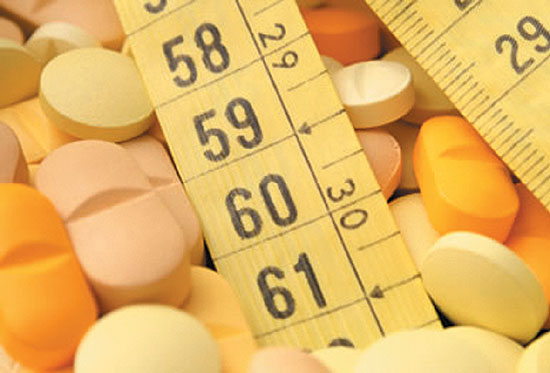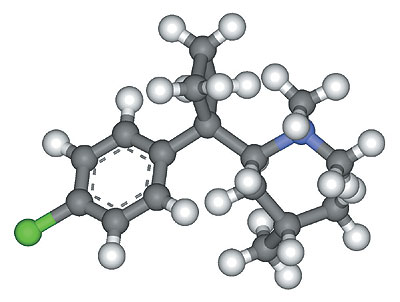
Weight loss fever in Korea has grown drastically for the past few years as the standard feature of beauty changed into a slim and tangible. Officially, Korean WomenLink researched female college students who have been on a diet recorded 80 percent of 1,044 students. And, the Ministry of Education, Science and Technology announced that the rate of students who are in the danger of high obesity was known as 7.4 students out of 1,000 in 2001 and the number is still growing as the year passes. Everyone coincides with the thought that a slim and fascinating body feature is more attractive than a plump and fleshy one. But some disorder can occur as many people try to lose weight rapidly.
Eating Disorder; Representative Side Effect
As the fever soars up rapidly, a side effect of losing weight has become a new subject. This is called "diet disorder" which occurs when a person works on losing weight extremely. Diet disorders can be defined in two ways. One is called "anorexia nervosa" which means one's appetite is gone away and refuses to eat anything. Desire to eat never goes away even in this case but person who has "anorexia nervosa" inhibits this against their will. In extreme cases, one's life is in a danger and needs hospital care when a person loses weight 30 to 40 percent of one's original weight.
The other opposite is called "bulimia nervosa" which means a patient eating a lot at once and vomitting everything they ate because of the fear of gaining weight. One distinctive trait is they do eat fast and a lot; they cannot stop eating while they had enough. Normally "bulimia nervosa" occurs just after the diet or just after gaining stresses.
This disorder can occur because of the excessive expectation of patients. When they fail to meet their own standard, they feel devastated and worthless, and self esteem can be seriously damaged. Furthermore, emotional ups and downs get worse, and enervation and a sense of inferiority develops. It ends up with social withdrawal, drug abuse, self-jury, and suicide.
Drugs to Help Losing Weight

To prevent this kind of disorder, drugs came out on the market which helps losing one's weight more easily. Many people are taking these drugs to prevent themselves from gaining weight or help themselves in losing weight. These types of "diet drugs" are clearly divided in two;
Orlistat and sibutramine. Orlistat, the ingredient also known as "tetrahydrolipstatin" is a drug designed to treat obesity. Its primary function is preventing the absorption of fats from the human diet, known as 30 percent of intake fat, thereby reducing caloric intake. Kim Hye-su, a researcher of Department of Safety Pharmacology Division of National Institute of Toxicological Research (NITR) said, "Fats in food must be digested into a smaller form to be absorbed in the body. Orlistat works by inhibiting pancreatic lipase, an enzyme that breaks down triglycerides in the intestine. Without this enzyme, triglycerides from the food are prevented from being absorbed."
Yoon Mi-ok from NITR, announced that foreign clinical research result tells that a patient can reduce 10 percent of his weight with the intake over one year period. In Korea, it is known as "Xenical" Patients whose BMI (Body Mass Index) number is over 27 kg/m2 are generally allowed to use this drug also with doctors' permission. WHO (World Health Organization) states that when a person's BMI number, which is calculated by weight divided by square of height, is greater than 30 kg/m2.
Sibutramine is also a drug concerned with losing weight. It is an orally administered agent for the treatment of obesity, as an appetite suppressant. Kim said, "It works at central nerve in the brain. It lets our body to lose appetite and leads to disjointing of fat cells, and increases the consumption of energy which finally triggers the body fat to decline." It works in the brain and inhibits the reabsorbing of serotonin and noradrenalin. This makes the body to feel easily satisfied even with a little amount of food. FDA (Food and Drug Administration) of the U.S announced with continual every day, intake of 15mg can reduce 6.4kg in one year.

Side Effects and Appropriate User
These two drugs are officially permitted to use in diets but abuse of these two drugs can cause side effects. The primary side effects of the drug are gastrointestinal-related, oily, loose stools; because Orlistat blocks some of the dietary fat from being absorbed. Orlistat works well for the person who often eats fatty food. But it can lead the deficiency in fat-solubility vitamins; vitamin A, D, E, and K.
Frequently encountered side effects of sibutramine are; dry mouth, paradoxically increased appetite, nausea, strange taste in the mouth, upset stomach, constipation, trouble sleeping, dizziness, drowsiness, menstrual cramps, headache, flushing, and muscle pain. Sibutramine can substantially increase blood pressure and pulse in some patients. Kim Hye-su of NITR "It can cause a rise in blood pressure, so while a patient is taking this, he should have a regular medical check ups for blood pressure and pulse."
Then who is appropriate for taking this drug? Concerning this, Kim said "Above all, before taking these drugs patients should consult with their doctors. Generally, NITR suggests that these obesity drugs be given to a patient whose BMI number is over 30 kg/m2 and for the patients who have 27 kg/m2 with high blood pressure, diabetes."
Drugs Which Misused as Diet Drugs

Fenfluramine and amfepramone are drugs that Korean government strictly controls; narcrotics, dangerous junk drugs. These drugs can lead to high blood pressure and diarrhea.
And aminophylline is often used as diet injection drugs. It is known as it can disjoint subcutaneous fat which is just below the human skin. But Korean Society for the Study of Obesity (KSSO) banned its use for the cure because its side effects and clinical results are not yet known and only its effect on animals has been tested with an amount of injection. Aminophylline is officially banned.
Drugs Without Side Effects?
There are no 100 percent safe drugs, including diet drugs. Everyone wants to have a perfect appearance throughout their lives and gain confidence from it. But the problem is in the mental attitude. Most people want to achieve their goal in a short time with little effort but they should not open their mouth too wide and think of entire balance of their body along with the sufficient physical exercises as a part of long term plan. Kim from NISR commented for the right procedure of losing weight "For the advisable example, the patient should not rely only on drugs. They should check their degree of obesity; BMI. And talk to their doctors and try it in various ways. Drugs, exercises, food cure, shrink therapies."Having self confidence in ones body is an important aspect for one's successful life but above all, having self confidence in mental health is far more important than the appearance.

